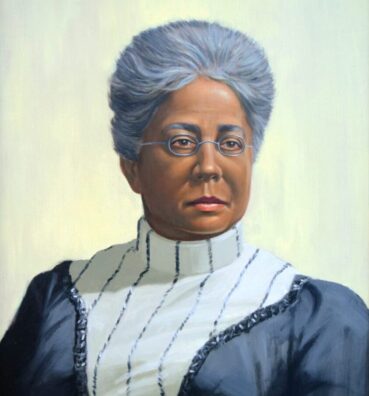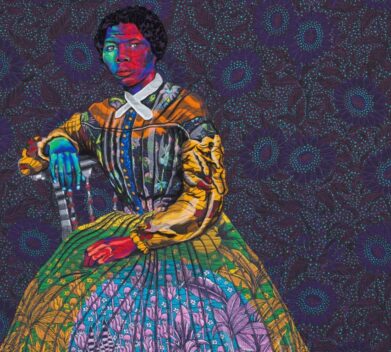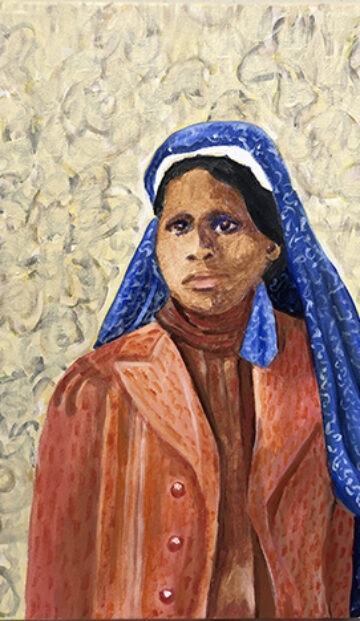‘’The difference between a broken community and a thriving one is the presence of women who are valued.’’
These words from Michelle Obama, former First Lady of the United States, couldn’t be more relevant in 2022; women are more important than ever before as we break boundaries and fight against oppression. We are privileged enough as women now to have equal roles to men in society, but where did it all start? For African American women, it was in the Civil War. The American Civil War was a hugely significant part of American history, when decades of tension between the North and the South reached a boiling point and exploded into bloody dispute. With thousands of casualties and more division amongst Americans than ever before, the people were crucial in showing where their loyalties lay. For the first time, African Americans were given more hope for freedom when President Lincoln issued the Emancipation Declaration in 1863. From nurses to teachers and even spies, the role of African American women within the war was certainly a unique and inspiring one. However, the achievements of Josephine St. Pierre Ruffin, Harriet Tubman and Susie King Taylor are particularly impressive.
Josephine St. Pierre Ruffin, born in 1842 into one of Boston’s leading black families, was a woman of fighting spirit. She grew up surrounded by abolitionist ideals which led her to become a civil rights activist who fought for justice, equality and political representation throughout her life. Though she is widely known for her work after the war, such as the founding of the Women’s Era club, she still contributed significantly to the war effort. Ruffin was a part of recruiting African American men to fight for the Union in the war, when black men were given a chance to fight in the army for the first time. She also worked for the United States Sanitary Commission where she served as an advisor on the physical and mental health of the military, assisted in the organisation of military hospitals and camps, and aided in the transportation of the wounded.

Overall, Ruffin was crucial in bringing African Americans into the spotlight with her devoted spirit. She is truly a memorable woman who should be commended for her bravery in stepping up to the fight for progression in America during a time where the fight for rights would determine the future of the country.

Harriet Tubman is perhaps one of the best-known African American women of all time, and rightfully so; she is a remarkable woman who made great achievements as a black woman during the Civil War. Born an enslaved woman, whose name was originally Araminta, she escaped a Maryland plantation in 1849 with her two brothers. She later returned, not just once but several times to help free others in the plantation. She became a conductor on the Underground Railroad, helping hundreds of slaves flee to freedom in Canada. But beyond her extraordinary work for the enslaved population of the American South, she was a nurse and soldier spy for the Union Army during the Civil War.
Tubman went to Beaufort, South Carolina, to work with army officers where she provided nursing care to soldiers and hundreds of newly liberated people who crowded Union camps. Alongside this, she recruited eight men and together they skilfully infiltrated enemy territory to spy on the enemy Confederates. She made contact with local slaves who confided in Tubman about Confederate movements and plans. Many trusted her particularly because of her status as an African American; white Union soldiers were, of course, regarded with caution by the enslaved. Tubman’s impact and work during the Civil War has made such an impression that to this day, her name is heard all around the world and commemorated. Tubman was posthumously inducted into the National Women’s Hall of Fame in 1973, the Maryland Women’s Hall of Fame in 1985 and the Military Intelligence Hall of Fame in 2019.
Susie King Taylor was born into slavery in 1848 in Georgia. She was only 14 when the Union Army attacked Fort Pulaski – in April 1862 – and Taylor was forced to flee with her uncle’s family and other black Americans to St. Simons Island, Georgia, where slaves were being freed by the army. Most blacks at the time were illiterate, but Taylor could, interestingly, read and write. Soon after her arrival, she was offered books and supplies with which she could set up a school on the island. She accepted this offer and became the first black teacher to openly teach African Americans in Georgia.
She taught both adults and children, night and day. Later in the war, she became involved in clerical work and nursing and began to assist the troops as they travelled and battled. She learnt everything she knew about nursing on the job, showing her resilience to make a solid status for herself as a black woman in war-torn America. She served wherever she was needed most until the end of the war, after which she continued to teach illiterate African Americans. Susie wrote a book about her life called Reminiscences of My Life in Camp where she documented her experiences as a black woman working in the army.

The accomplishments and contributions of these three women to equality, justice and their nation are outstanding, but they were only a tiny percentage of the black American population. I think it’s very important that today, when many different groups are still brutally oppressed, we look back at women in history and remember that we shouldn’t undermine ourselves. These women made something of themselves out of nothing, and there is nothing to say any of us can’t do the same now. I’d like to end with two words from Harriet Tubman:
Keep going.
Sources: https://www.womenhistoryblog.com/2014/01/african-american-women-in-the-civil-war.html https://www.brandeis.edu/now/2022/june/tubman-civil-war-larson.html https://www.nps.gov/people/josephine-st-pierre-ruffin.htm
Eiraj Kayani